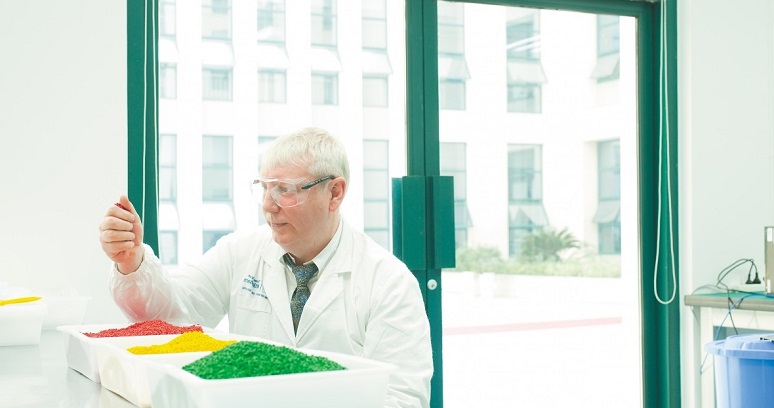
Dr Philip Hall
Associate Professor in Environmental Engineering
Dr Philip Hall, Associate Professor in Chemical and Environmental Engineering, Head of Department of Chemical and Environmental Engineering, has been appointed as the Acting Associate Dean for Education and Student Experience in the Faculty of Science and Engineering.
Dr Philip Hall studied Chemistry during his undergraduate studies. After graduation, he started his industrial career as a supervisor in the waste incineration plant. During that period, he gradually noticed that working in such a complex plant, his chemistry background become less important while it required more engineering knowledge.
He was introduced to the University of Nottingham when he was working in the industry due to the collaboration between the company he was working for and the University of Nottingham. Therefore, when he decided to be retrained and pursue further study, he turned to his contact at the University of Nottingham, Professor Nick Miles, for advice.
Professor Nick Miles offered him a PhD opportunity at the University of Nottingham, based on his over 20 years’ industry experience. At last, it turned out to be a PhD for Philip Hall at an age of 43. Dr Hall told us that it was a challenging task for him.
Honestly speaking, it was very difficult for me since I was away from academia for many years and I did not know how to reference things at the very beginning. My office mates and my supervisor gave me a lot of help to get me back to academia.
Later, Dr Philip Hall became a European Innovation Fellow to take his research on CRT recycling into industry and develop it on a large scale. He brought his research and industry experience to China in 2009 after he joined the University of Nottingham Ningbo China. His current research focuses on three parts: the use of mineral processing techniques for the recycling of waste electrical and electronic devices, such used solar panels, spent lithium-ion batteries and electronic circuit boards; plastic recycling for high value-add products through formulation development and process optimisation; and developing a novel pipe design, GreenPipe, that leads to process efficiency improvement in hydraulic and pneumatic conveying systems. His research is significant to solve the problem that society is facing.
As the popularity of electric vehicles starts to grow exponentially, so does the amount of spent lithium-ion batteries (LIB) that once powered these cars. In 2020, China generated 212,500 metric tons of used LIB from electric cars alone. The recycling of used LIB is not only for environmental benefit, but also with huge economic benefit because of the amount of valuable metals in it, such as lithium and colbat.
Dr Philip Hall and his team have developed a process for the recycling of lithium-ion batteries to recover electrode materials as well as current collector layer using attrition scrubbing, electrostatic separation and froth flotation, process scale-up was funded by a 2025 project. They are also working on the Copper Indium Gallium Selenide Absorber Layer Recovery from Waste Solar Panels.
Back to the time when Philip was still doing his PhD, he developed a module called Waste Management for Chemical and Environmental Engineering students because of his background working in the waste management industry and already started to teach students. The module later was included in the curriculum and taught across three campuses of the University of Nottingham. From that time, Dr Hall has found that teaching is quite exciting and enjoyable.
Dr Philip Hall values industry experience and he believes that it is very useful to give students real examples of what industry practice is. He told us that in the CEE department, and across the Faculty, they invite people from the industry to give lectures to their students. “They bridge between academia and industry and give students a flavour of what industry is about.” Moreover, Dr Hall advocates the pedagogical method should be adapted to the student and subject and he believes that as a teacher he should look into what is needed to get the best from the student—to unlock students' potential and ensure they perform the best of their ability.
He has been very active in the Faculty teaching and learning activities and he brought up the idea of a design studio for engineering students. It is the first of its type in the UNNC, specifically set out for group work, and later it has been further used in the UNNC digital classroom.
As the new Associate Dean for Education and Student Experience, Dr Philip Hall said that he is going to listen to students and fully understand their concerns. He is going to encourage staff to review and reflect on their teaching and look for the best practice across the Faculty.